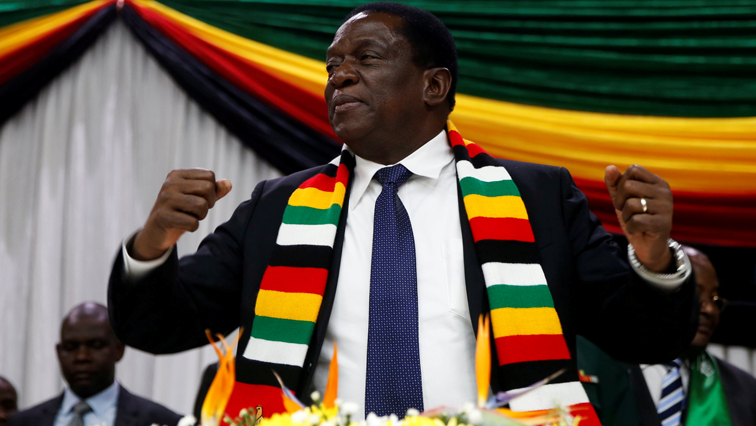Zimbabwean President Emmerson Mnangagwa has signed into law the Tripartite Negotiating Forum (TNF) Bill. The bill outlaws industrial actions like strikes and protests before exhausting other avenues.
The new law comes at a time when Mnangagwa’s administration is facing protest over the deteriorating economic situation in the country.
Earlier this year, Zimbabwe adopted the bond note as the local currency. The new currency has since suffered a huge devaluation, both on the official market as well as the black market.
Some analysts say this may be a ticking time bomb as protests are imminent. However, Mnangagwa is calling for more dialogue.
“In the second republic, lets us shun the culture of militancy, disharmony and demonstrations. We must develop greater understanding of each other’s perspective because each one of us has a duty, like one writer says, “most problems would disappear if people talked to each other more instead of talking about each other.”
Zimbabwe’s biggest trade union, Zimbabwe Congress of Trade Unions has welcomed the Tripartite Negotiating Forum Bill, but reminded government of the report by the International Labour Organization (ILO) Commission of Inquiry.
“The commission visited the country on its fact finding mission in August and established the following that there was routine infringements of workers’ rights to strike and demonstrate, widespread arrests, detentions, assaults and torture of union officials, intimidation and harassment of unions and their members including teachers and farm workers. Importantly the report highlighted the role of the police and army in the violations as an issue that is pertinent even now. We therefore note as labour your excellency that the national social dialogue is of extreme importance and has strategic dimensions that deepening consultation between social partners build consensus on broad issues including currency options that should enable Zimbabwe to navigate this treacherous terrain and crisis in a balanced and inclusive way that promotes social justice fairness and equity,” says Zimbabwe Congress of Trade Unions President Peter Mutasa.
Recently, the Zimbabwe Nurses Association declared a deadlock with government over salaries and issued a 14-day notice to their employer.
“Social dialogue is an effective tool for people to find each other, forge a new national vision and commit to walk together towards a common national purpose. As the ILO we are convinced that the commissioning of the TNF as a legislature chamber will go a long way to implement the TNF bill which you recently signed into law. Honourable ministers, through social dialogue no crisis can be wasted. Successful social dialogue structures and processes have the potential to resolve important economic and social issues, encourage good governance, advance social justice, industrial peace and stability and boast economic progress,” says ILO Country Director for Zimbabwe and Namibia Hopolang Phororo Hopolang Phororo.
Organised business have also welcomed the TNF and called for more participants to come on board.
“The enactment of this law is a good beginning in terms of creating an enabling environment for social dialogue and provision of economic solution; however the TNF will not have monopoly interims of finding solutions as there are many other stakeholders out there and economic agents seized with the same issues. Other organised stakeholders like the SME sector, and the informal sector can also be accommodated for inclusivity provided they also have organised structures. It is a fact that the informal sector has become the biggest sector and I think we cannot exclude them as long as they have got organised structures. I think they should participate so that everyone is involved,” says Employers’ Confederation of Zimbabwe Dr Israel Marufu.
Zimbabwe continues to face shortages of hard currency and medicines. A power crisis has seen industries and households going for up to 10 hours without electricity and the TNF Bill is going to be put to the test immediately.






